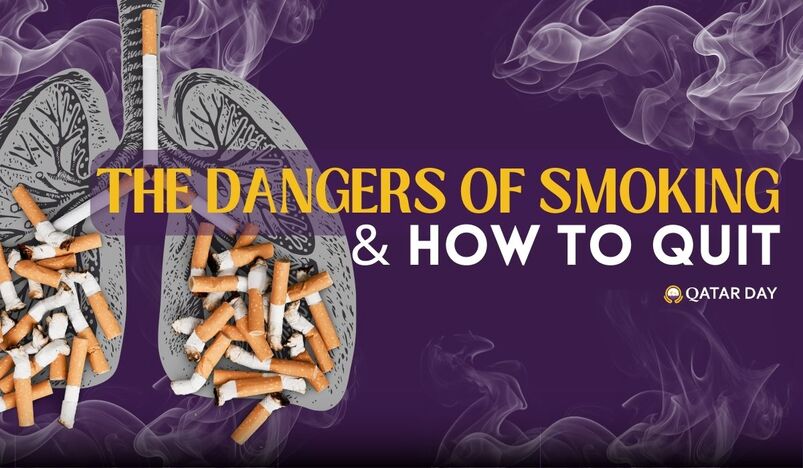
The Dangers of Smoking and How to Quit
Smoking is often glamorized in movies and advertisements, but the reality is far from glamorous.
Lighting up a cigarette introduces over 7,000 chemicals into your body, many of which are harmful.
The most notorious of these is nicotine, a highly addictive substance that hooks smokers and keeps them coming back for more.
Cancer: Smoking is the leading cause of lung cancer, responsible for about 85% of all cases. But it doesn’t stop there; it’s also linked to cancers of the mouth, throat, esophagus, pancreas, bladder, cervix, and kidneys.
Heart Disease: Smokers are 2-4 times more likely to develop heart disease. The chemicals in tobacco damage the lining of your arteries, leading to a buildup of fatty material which narrows the artery.
Respiratory Problems: Chronic obstructive pulmonary disease (COPD) is another major consequence, causing breathing difficulties and leading to chronic bronchitis and emphysema.
Weakened Immune System: Smokers are more prone to infections like pneumonia and influenza, and they generally have a harder time fighting off illnesses.
Premature Aging: Smoking accelerates the aging process, leading to wrinkles, yellowed teeth, and a generally haggard appearance.
Quitting smoking can seem daunting, but the benefits are immense and immediate.
Within just 20 minutes of your last cigarette, your heart rate and blood pressure drop. Within 12 hours, carbon monoxide levels in your blood return to normal. And the benefits keep stacking up: your risk of heart disease drops by half after a year, and after 10 years, your risk of lung cancer falls to about half that of a smoker.
Set a Quit Date: Choose a date within the next two weeks to quit. This gives you enough time to prepare without losing motivation.
Identify Triggers: Recognize what makes you want to smoke, whether it's stress, social situations, or after meals. Knowing your triggers can help you avoid them.
Seek Support: Tell your friends, family, and coworkers that you’re quitting. Their encouragement can make a huge difference.
Consider Nicotine Replacement Therapy (NRT): NRTs like patches, gum, lozenges, and inhalers can help reduce withdrawal symptoms and cravings.
Prescription Medications: Medications like bupropion (Zyban) and varenicline (Chantix) can help reduce cravings and withdrawal symptoms. Consult your doctor to see if these are right for you.
Behavioural Therapy: Working with a counsellor can help you develop strategies to quit and stick with it.
Stay Busy: Keeping your hands and mind busy can distract you from cravings. Pick up a new hobby, exercise, or chew gum.
Avoid High-Risk Situations: Steer clear of places or activities where you’re more likely to smoke, especially in the early days of quitting.
Reward Yourself: Celebrate milestones and treat yourself to staying smoke-free. It’s important to recognize your achievements.
Stay Positive: Quitting smoking is hard, and setbacks can happen. Don’t let a slip-up discourage you. Learn from it and keep going.
Finding enjoyable alternatives to smoking can make the transition easier and more fun. Here are a few ideas:
Exercise: Physical activity releases endorphins, which can boost your mood and reduce stress.
Cooking: Experimenting with new recipes can be a rewarding distraction.
Social Activities: Spend time with non-smoking friends or join clubs that interest you.
Mindfulness and Meditation: These practices can help manage stress and improve mental clarity.
Quitting smoking is one of the best things you can do for your health. While the journey may be challenging, the benefits far outweigh the difficulties.
With determination, support, and the right strategies, you can kick the habit and enjoy a healthier, smoke-free life.
So, take a deep breath, put down that cigarette, and start your journey towards a brighter, healthier future. You’ve got this!
.jpg)
Qatar Secures Place Among the World's Top 10 Wealthiest Nations
.jpg)
Hamad International Airport Witnesses Record Increase in Passenger Traffic

Saudi Arabia: Any visa holder can now perform Umrah

What are Qatar's Labour Laws on Annual Leave?
Leave a comment